Heroes in pink – Celebrating our midwives
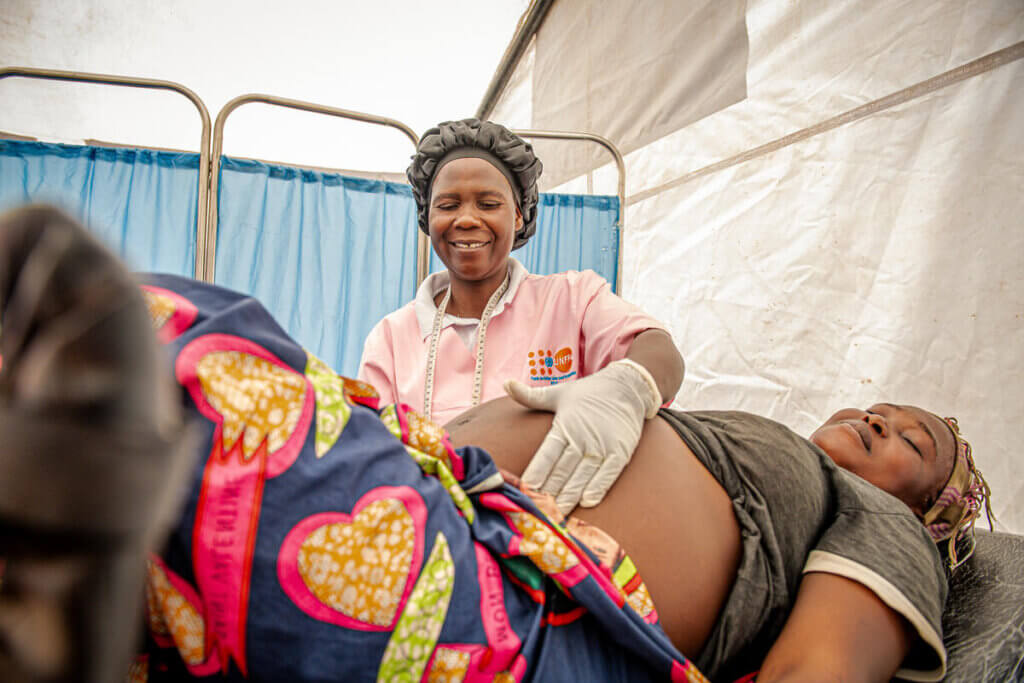
Today is International Day of the Midwife – and we’re taking this moment to celebrate the resilience and importance of our midwives. Midwives provide a broad range of services, including prenatal appointments, safe delivery care, post-partum check-ups, birth control consultations, support for survivors of violence, and more.
Midwives are integral to our efforts to bring incidents of preventable maternal deaths down to zero. In fact, if governments invested more in training midwives, these heroes in pink could account for 90% of the global need for sexual and reproductive care.
And yet, we are facing a global shortage of 900,000 midwives around the globe. Through the support of this community, we train and deploy midwives so we can close this gap in care – and our midwives are truly remarkable. Here are some stories from our midwives in the field.
UNFPA midwives share their stories
Preventing needless tragedies
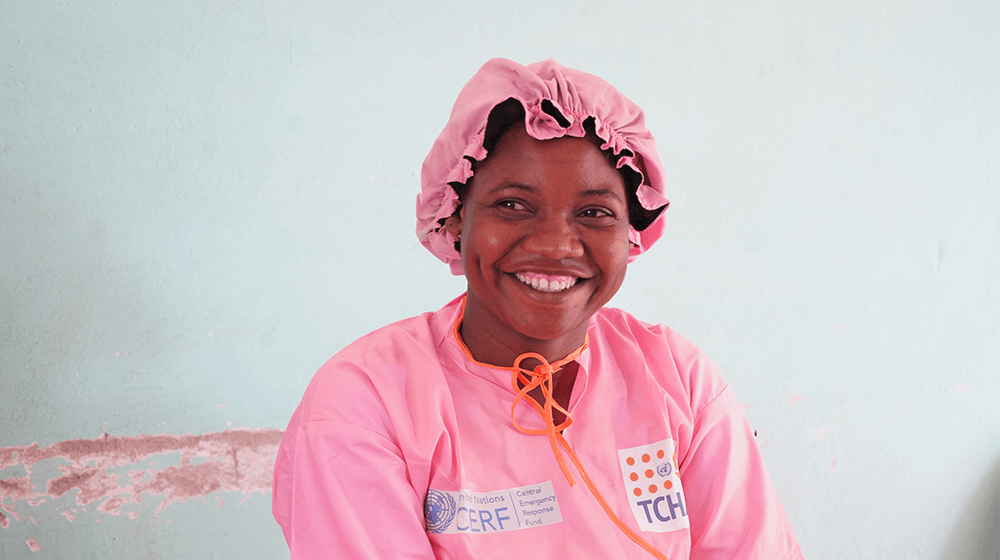
“At the start of the crisis, the work was very complex. People came with fear and trauma,” midwife Neïma told us. Neïma works at the Kalambari refugee camp in Chad’s capital, where nearly 10,000 displaced people reside after violence reignited in the northeast region of the country and a searing drought dried out much of the Lake Chad basin.
“We have handled [36] cases of premature births and [23 cases of] rape,” Neïma continued. The conditions for many of the women and girls she treated were dire – but she did not bend to the grief or the exhaustion. She put her head down and continued to do what she was trained to do – save lives.
In March 2024, Neïma and her colleagues carried out 400 prenatal consultations and conducted 45 safe deliveries. “Directing women for adequate care and saving lives is something that makes me proud as a midwife,” Neïma shared.
According to Neïma’s coworker, Charité, there have been no maternal deaths at the camp since she has worked there. “This is a real reason for satisfaction. I feel a sense of pride in the work I do for maternal health.”
Working even in the face of incomprehensible trauma
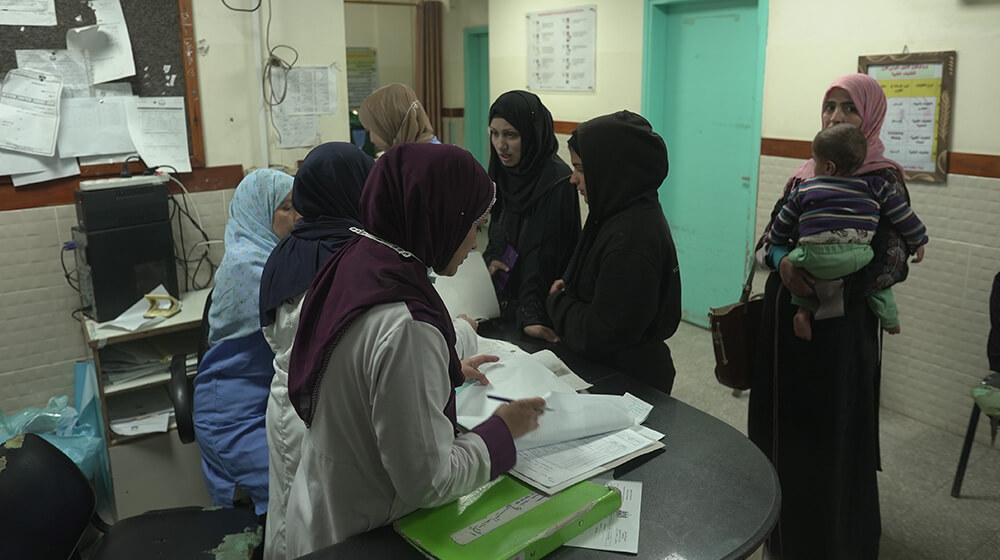
In places like Gaza, where the healthcare system has completely collapsed, midwives have rushed to fill the gap. They do not have enough room, enough people, or even adequate supplies – but that does not stop them from working to save the lives of as many mothers and babies as possible.
“We have seen a significant increase in the number of deliveries. We are delivering babies non-stop. One day, we had 78 newborns,” said a midwife in Rafah.
“The number of births has increased. The workload has increased. There’s not enough time in the day. We can’t sit down for even a minute. One case after another. It’s miserable.”
Midwives in Gaza are working day and night to deliver babies who are too weak to even cry, but they never relent in their efforts. Since the crisis began at the end of 2023, UNFPA has helped to deliver half of all babies born in Gaza.
The first on the ground during emergencies
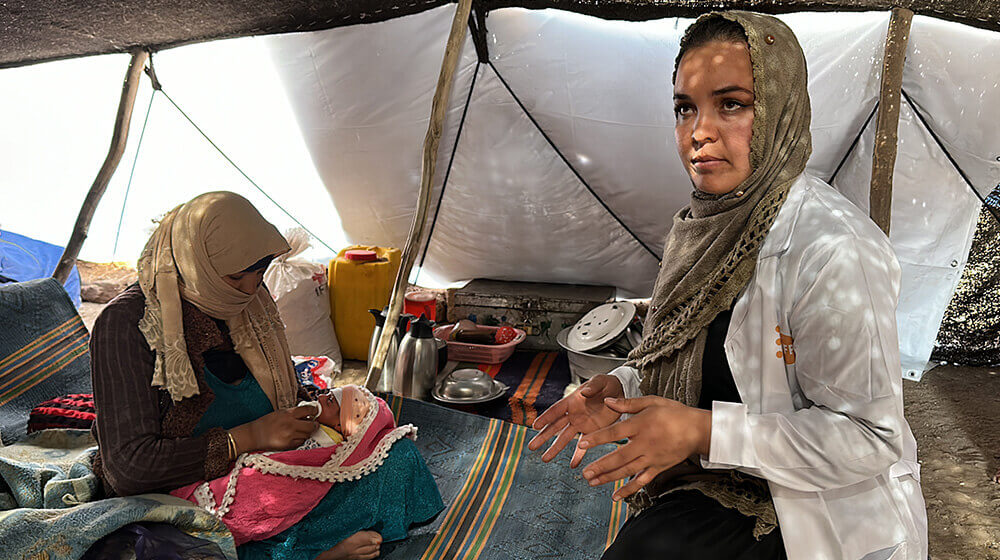
“I thought, ‘How can a mother bring a child into this chaos?’ But then Rahna, the midwife, arrived like an angel,” Hanifa shared with us the thoughts she was having on the eve of her delivery. Only days beforehand, a series of violent earthquakes in Afghanistan had leveled entire villages – destroying Hanifa’s house as well.
Hanifah, with the cover of just a tent over her head, was petrified when the contractions began. But Rahna guided Hanifah through the birth – even safely navigating through Hanifah’s blood pressure spiking dangerously high.
Finally, after a 6-hour labor, Rahna safely delivered the baby. “It was a challenging situation, but when I saw the relief on Hanifa’s face as she held her baby, I felt a profound sense of pride. I was able to save not just one life but two – the baby and Hanifa,” Rahna shared with us. “In the midst of disaster, we brought a glimmer of hope, and that’s a feeling I’ll carry with me forever.”
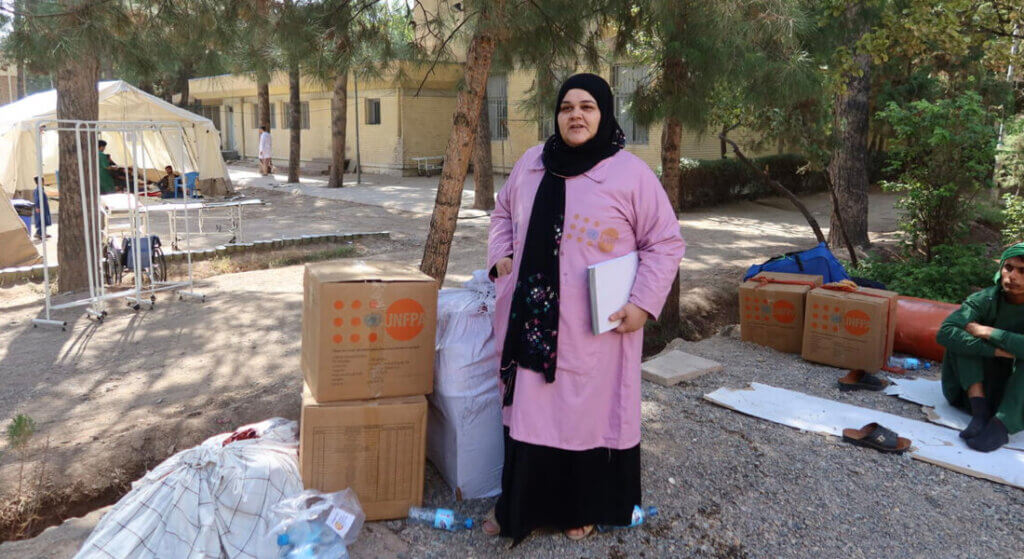
When tragedy strikes, midwives are among the first round of healthcare workers deployed. Midwife Nasifa was on the ground in Afghanistan within 24 hours of the earthquake, providing pregnant women with care in a maternal health tent.
Midwives, no matter what
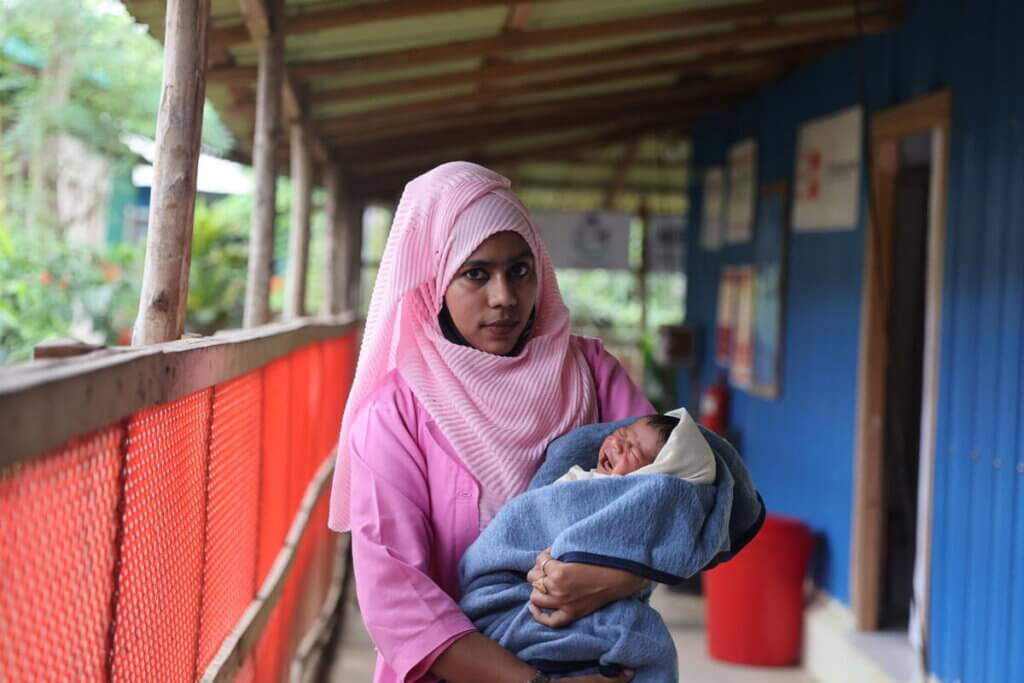
From areas of active conflict to areas decimated by extreme weather events, midwives are on the ground, no matter what. They put their lives on the line to work in some of the most dangerous places for mothers, and thanks to their unyielding courage and resilience, over 4 million lives are saved each year.